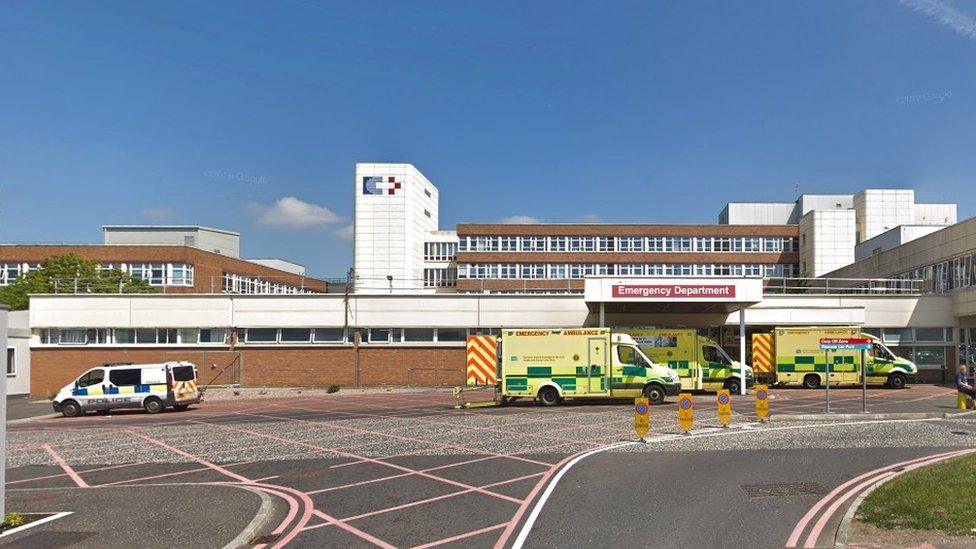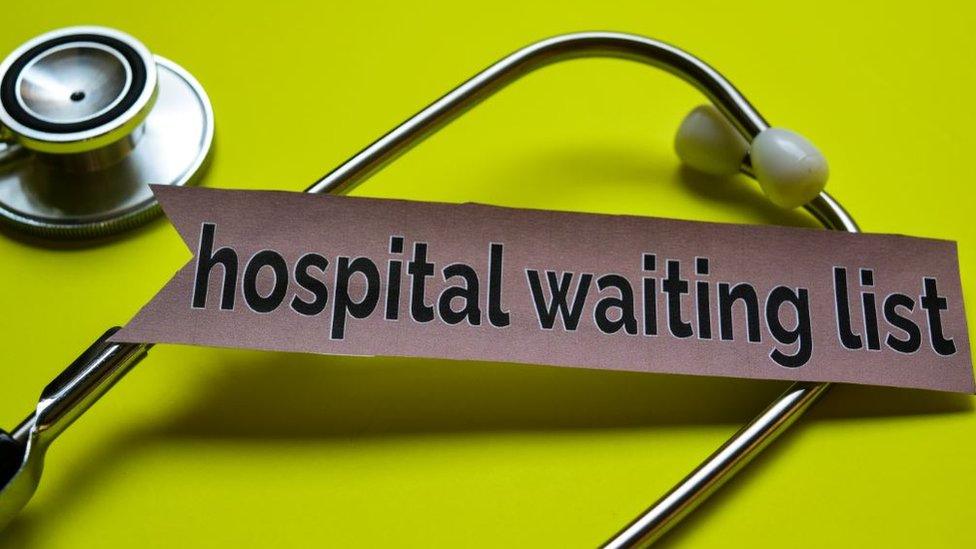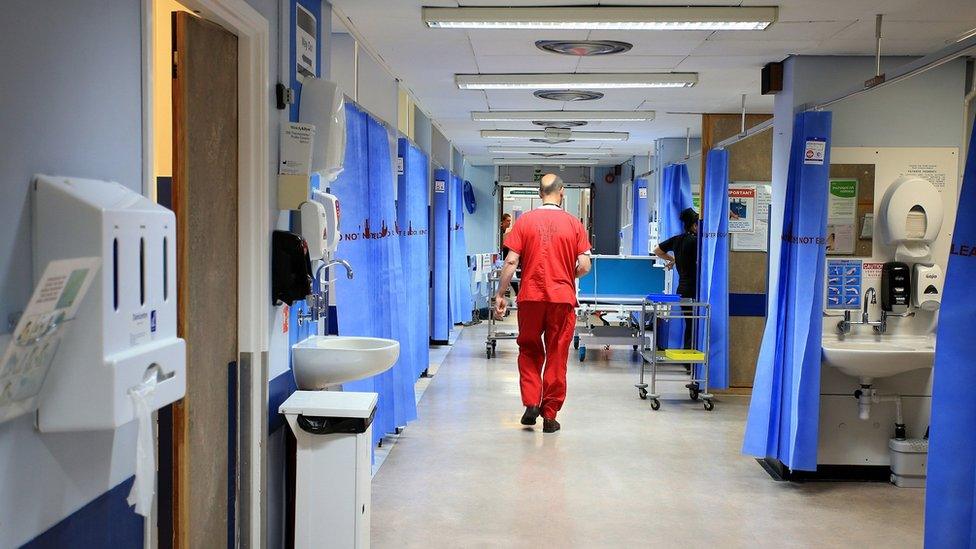Increase in patients waiting at Northern Ireland's emergency departments
- Published

Government targets state no patient should wait longer than 12 hours for emergency department services
The number of patients who waited more than 12 hours in Northern Ireland's emergency departments last month was double the same time last year.
The 12-hour target was breached 3,482 times in September 2019, according to figures from the Department of Health.
This compares to 1,714 breaches in September 2018.
The Department of Health said there had been a significant increase in patients attending emergency departments compared to the same period in 2018.
The department also warned that it was "inevitable that demand for services will increase further over the winter period".
It added that while "additional measures will be put in place to address the need, it is anticipated that the months ahead will be extremely challenging for EDs and the dedicated staff who work there".
'Unprecedented risks'
The department's latest figures showed that a typical average wait in Northern Ireland's emergency departments last month was two hours and 54 minutes.
The hospital which recorded the shortest typical wait was the Royal Belfast Hospital for Sick Children, where young patients could expect to wait up to three hours 45 minutes for treatment.
The longest waiting times were experienced at Craigavon Area Hospital in County Armagh, where patients typically waited for nine hours and 33 minutes last month.
A government target states that no one attending any ED should wait longer than 12 hours, but this increasingly the case for thousands of patients.

Craigavon Area Hospital had the worst average waiting times last month
Looking at the wider figures, the Royal College of Emergency Medicine (RCEM) said it was "staggering" that 18,046 patients spent more than 12 hours waiting in EDs over the first six months of this financial year.
The vice president of RCEM in Northern Ireland, Dr Ian Crawford, said the data showed patients and staff "continued to experience unprecedented risks to quality of care and patient safety throughout the summer months".
"As we approach the winter months from our lowest ever baseline, we must expect these risks to increase further as even more patients spend even longer in even more crowded EDs," he added.
"As I understand it, there is no additional funding forthcoming this year to support winter preparedness.
"In practical terms, it is simply impossible for our ED teams to be expected to deliver more with less year on year."
Dr Crawford said "corrective investment" was needed to increase staffing, acute hospital beds and social care provision to care for a growing, aging population.
- Published13 October 2019

- Published29 August 2019

- Published30 May 2019
